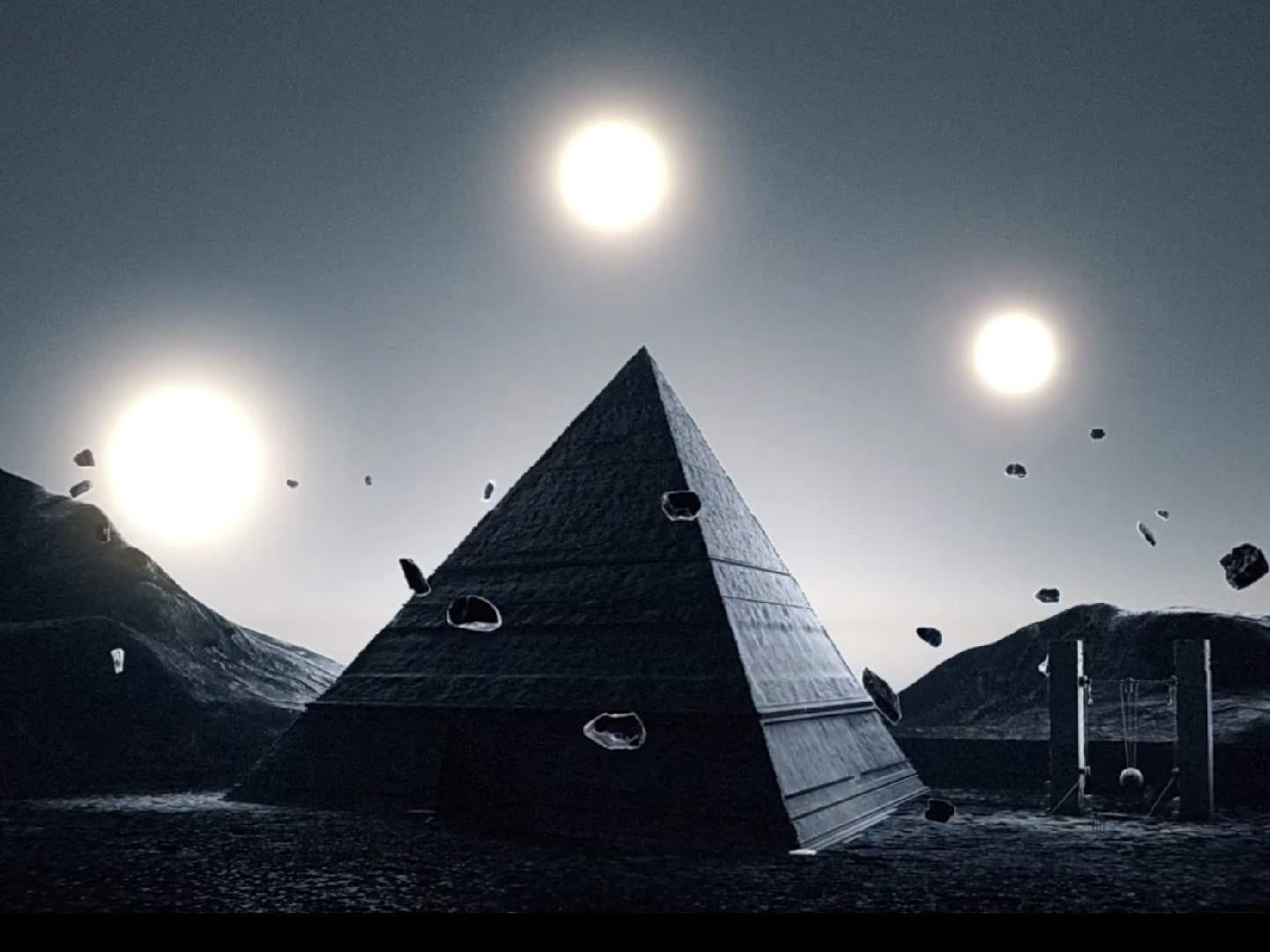No to cosmic censorship! Singularities have a right to go naked
Also, an Omega Point poem and a Three-Body series.
Greetings to all readers and subscribers, and special greetings to the paid subscribers!
Please scroll down for the main topic of this newsletter. But first:
Here is great quote from Isaac Asimov. I totally agree:
“I believe that scientific knowledge has fractal properties; that no matter how much we learn, whatever is left, however small it may seem, is just as infinitely complex as the whole was to start with. That, I think, is the secret of the Universe.”
I’m watching a TV adaptation of Liu Cixin’s science fiction masterpiece “The Three-Body Problem,” produced by Tencent Video. The episodes are being released one per day on the YouTube channel of Tencent Video.

I’ve watched 7 episodes so far, and I like that the series follows the novel closely. There’ll also be a Netflix adaptation.
Thanks Derik for alerting me! I would binge watch all 30 episodes in one session if I could. Not only I find Liu Cixin’s novels awesome, but I think they are very significant for our global 21st century culture. I’ll say much more in the next newsletter.
Czesław Miłosz, the winner of the 1980 Nobel Prize in Literature, wrote a short poem inspired by the ideas of Frank Tipler. The English translation of the poem was first published in “Facing The River” (1995). Here it is, retrieved from Wayback Machine:
After Enduring
The hypothesis of resurrection
Drawn by an eminent scientist from quantum mechanics,
Foresees our return to familiar places and people
After a billion or two billion earth years
(Which in the beyond-time equals one instant.)
I am glad to have lived long enough to witness the fulfillment of predictions
About a possible alliance of religion and science,
That was prepared by Einstein, Planck, and Bohr.
I do not take too seriously scientific phantasies,
Though I respect graphs and computations.
The same was expressed more concisely by Peter the Apostle,
When he said: Apokatastasis panton,
The renewal of all things.
Yet it is helpful: to be able to imagine
That every person has a code instead of life
In an eternal storage room, a supercomputer of the universe.
We disintegrate into rot, dust, microfertilizers,
But that code or essence remains
And waits, till at last it takes flesh.
And also, as the new corporeality
should be cleansed of evil and afflictions,
The notion of purgatory enters the equation.
Not different is what the faithful in a country church
Repeat in chorus asking for life eternal.
And I with them. Not comprehending
Who I will be when I wake after enduring.
My readers know that I’m very much against all forms of censorship. I totally agree with Elon Musk: what is allowed by the law should not be censored.
Actually my position is even stronger: some laws are unnecessary and stupid, and should be canceled. For example, there are laws that say people must not go naked in the street. But the law shouldn’t punish victimless crimes. Who is harmed if you go naked in the street? The only victim is an obsolete abstract sense of “morality” that we should really get rid of, and the sooner the better.
Of course, I’m very much against censorship in science. I think scientists must be free to research what they want and communicate their ideas to the public, including highly imaginative and politically incorrect ideas.
If you google censorship+physics, the first thing you find is something called the cosmic censorship hypothesis: no naked singularities exist in the universe. This would be censorship that the universe itself imposes on naked singularities - mathematical solutions of Einstein’s field equations of general relativity that are not hidden behind event horizons.

“If such regions of spacetime affect us, we would not be able to predict our future using general relativity,” notes the Founding Director of the Black Hole Initiative at Harvard Avi Loeb, a top scientist who is not afraid of highly imaginative ideas.
So the victim of naked singularities is determinism. Or, better, the conventional definition of determinism. But I think conventional determinism is too limited - a bad law - and general relativity suggests ways to extend it.

